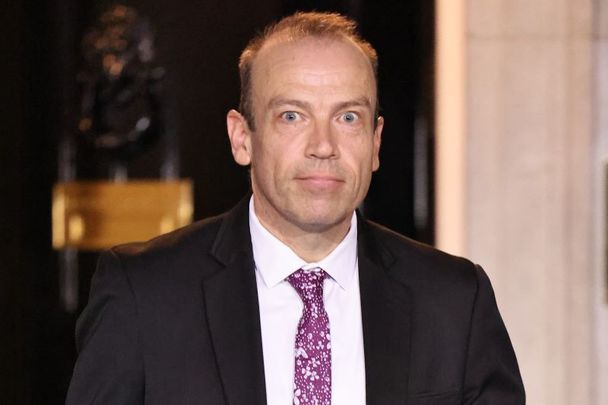The British Government has said that it "profoundly regrets" the Irish Government's decision to bring legal action against its controversial Northern Ireland Troubles (Legacy and Reconciliation) Act 2023.
In a statement on Wednesday evening, Secretary of State for Northern Ireland Chris Heaton-Harris described the case as "unnecessary," stating that the legal action comes at a "particularly sensitive time for Northern Ireland."
The controversial Northern Ireland Troubles (Legacy and Reconciliation) Act, which became law in the UK in September despite widespread opposition, aims to grant immunity to those accused of Troubles-era crimes if they cooperate with the newly-established Independent Commission for Reconciliation and Information Recovery (ICRIR).
Heaton-Harris said the ICRIR is preparing ahead of its full establishment next year and said the British Government had urged the Irish Government to directly engage with the Commission before taking legal action.
"It is a matter of considerable regret that it has chosen not to do so," Heaton-Harris said.
Taoiseach Leo Varadkar said earlier on Wednesday that the Irish Government was left with "no option" but to bring a legal case against the UK under the European Convention on Human Rights.
"The government took a decision that we will take an interstate case to the European Court of Human Rights in Strasbourg, seeking a judicial review of the UK Legacy Act," Varadkar said on Wednesday.
"The attorney general’s advice on this is very strong, his advice is that the UK Legacy Act is in breach of the UN Convention on Human Rights. It’s also the view of the UN high commissioner and also the Council of Europe."
Varadkar added that the Irish Government is taking the case with a "sense of regret and would prefer not to be in this position."
"We did make a commitment to survivors in Northern Ireland and to the families of victims that we would stand by them, respect their wishes, and also stand by the Good Friday Agreement," Varadkar added.
Meanwhile, Tánaiste Micheál Martin said the Irish Government's decision was made after "much thought and careful consideration."
"I have consistently adopted a victims-centered approach to this issue. We are not alone in our concerns.
"Serious reservations about this legislation have also been raised by a number of international observers, including the Council of Europe's Commissioner for Human Rights and the UN High Commissioner for Human Rights.
"Most importantly, this legislation is opposed by people in Northern Ireland, especially the victims and families who will be most directly impacted by this act."
The controversial Northern Ireland Legacy legislation has the rare distinction of being opposed by all of Northern Ireland’s major political parties.
As well as the Irish government, it is also opposed by victims and victims groups, US politicians, Irish American groups, UN experts, and the majority of the UK public.
However, Heaton-Harris said the Irish and British Governments have previously worked together on a range of initiatives that would have provided conditional immunity and early release from prison.
"The Tánaiste has stated that the Irish Government is intent on pursuing a victim-led approach. They have been critical about our proposed approach on the grounds that it moves away from a focus on criminal prosecutions. We believe that the Irish Government’s stated position on dealing with legacy issues is inconsistent and hard to reconcile with its own record," Heaton-Harris said on Wednesday evening.
"At no time since 1998 has there been any concerted or sustained attempt on the part of the Irish state to pursue a criminal investigation and prosecution-based approach to the past.
"We note, in particular, the former Irish Justice Minister and Attorney General’s 2014 reference to an informal decision on behalf of the Irish Government to not investigate Troubles cases – something that he restated publicly in 2021 in response to our proposals.
"Indeed the Irish Government should urgently clarify the number of criminal prosecutions brought in Ireland since 1998 relating to Troubles cases."
Heaton-Harris said the British Government will continue to "robustly defend the legislation" and ensure that the work of the ICRIR can continue while the legal proceedings are ongoing.
"The bilateral relationship with Ireland is, and always will be, one we value deeply. Despite this misguided action, we will continue to work to minimize the consequences and protect the interests of the people and businesses that bind us together," Heaton-Harris concluded.
Amnesty International Ireland praised the Irish Government for "doing the right thing" by "taking a stand" for victims of the Troubles in Northern Ireland.
Human rights groups have warned that the Troubles Legacy Act breaches human rights, stating that the European Court of Human Rights has previously found that granting amnesties is incompatible with a country's obligation to investigate allegations of unnatural deaths and torture.




Comments